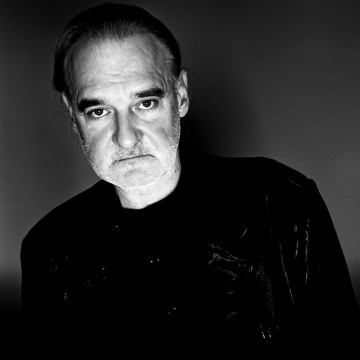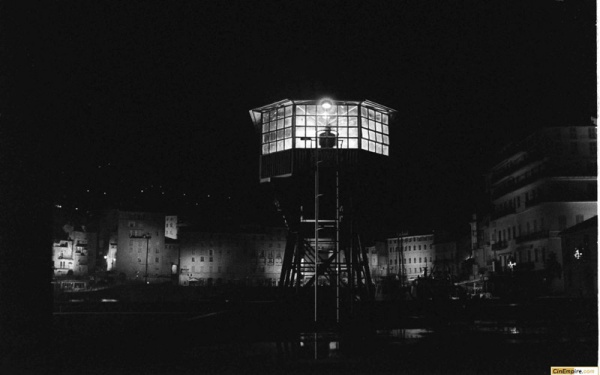
Béla Tarr is a bit of an enigma. He’s not interested in making things easy on his viewers. His films are often called difficult, and even in interviews, he is not likely to give you many hints that will make them any easier. He likes to contradict himself, and often comes off as a bit of a contrarian. He seems to enjoy a spirited conversation, and even when he seems most passionate, or even a bit angry, you can catch a wry smile if you keep a close eye on him. This was quite evident when he was here for a Regis Dialogue with Howard Feinstein in 2007, which can be seen on the Walker Channel.
I tend to think that all of this speaks to his desire to let his work speak for itself. Certainly, many filmmakers prefer this, but in Béla Tarr’s case, I believe it’s because there aren’t simple answers, definitions, and insights that he can offer. Tarr’s recent work – perhaps since Almanac of Fall (1985), or even moreso Damnation (1988) – deals heavily in atmosphere. With his virtuosic use of the long take, the landscape and surroundings become as important a character as any of the people in the film. Scenes tend to unfold quite slowly and the drama and tension evolve quite organically – unconcerned with the tenets of traditional storytelling and filmmaking.

As a viewer, I’ve found myself completely enveloped by these films. I was watching the screen, but felt completely surrounded by the overarching moods and textures in these films. In my experience, this is quite rare. During the dialogue, when talking about Damnation, Tarr notes that the film has a “cosmical” meaning to it. This is the crux of his filmmaking for me. Béla Tarr has this uncommon gift of creating cinema that has a spiritual quality to it – not spiritual in a religious sense, but in a more ethereal way. It’s a quality I was trying to get at in blog post from several years ago about Stan Brakhage and Nathaniel Dorsky, and one that Dorsky himself aimed to describe and define in his book Devotional Cinema. Ultimately, it is what I long to get out of a cinematic experience. It is a rare find, but a transformative and invigorating experience.
That is what keeps me returning to Béla Tarr and the reason I so look forward to our presentation of The Man from London this coming Thursday. We had initially presented the film during the Regis Retrospective in 2007 (sadly, I missed both of our screenings), but ultimately, Tarr was displeased with the sound. That 2007 version had all of the dialogue dubbed into Hungarian, and after its first few festival screenings, he decided to go back and completely rework the audio getting back to the original English and French dialogue. This is the first time (and possibly the last) this has screened here. The screening is free and open to the public.
[youtube]http://www.youtube.com/watch?v=uyb-7Mb7irA&feature=related[/youtube]
Get Walker Reader in your inbox. Sign up to receive first word about our original videos, commissioned essays, curatorial perspectives, and artist interviews.